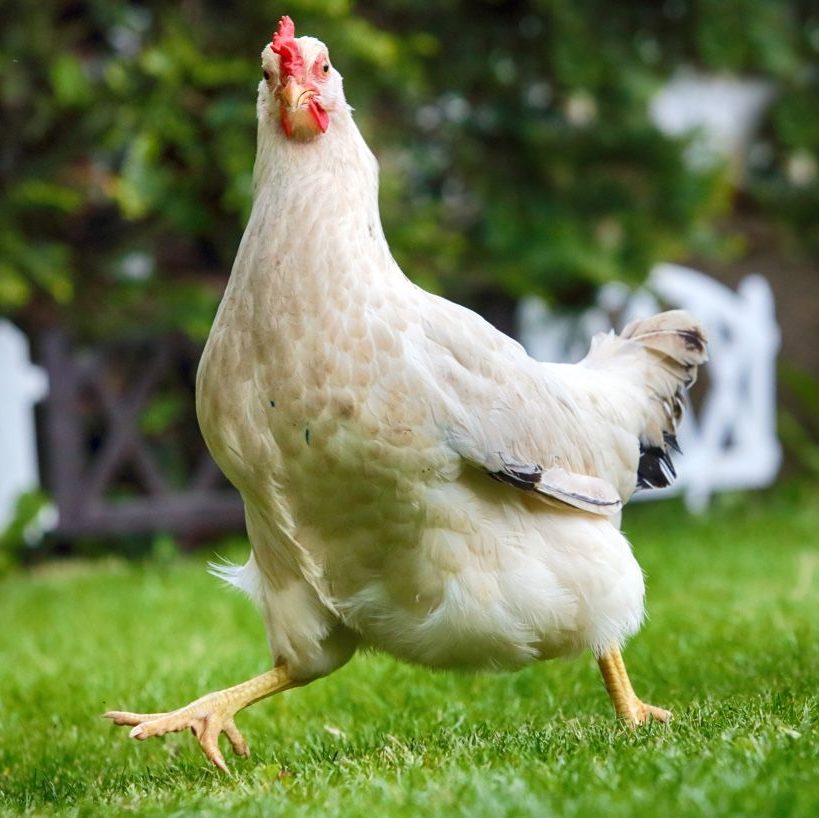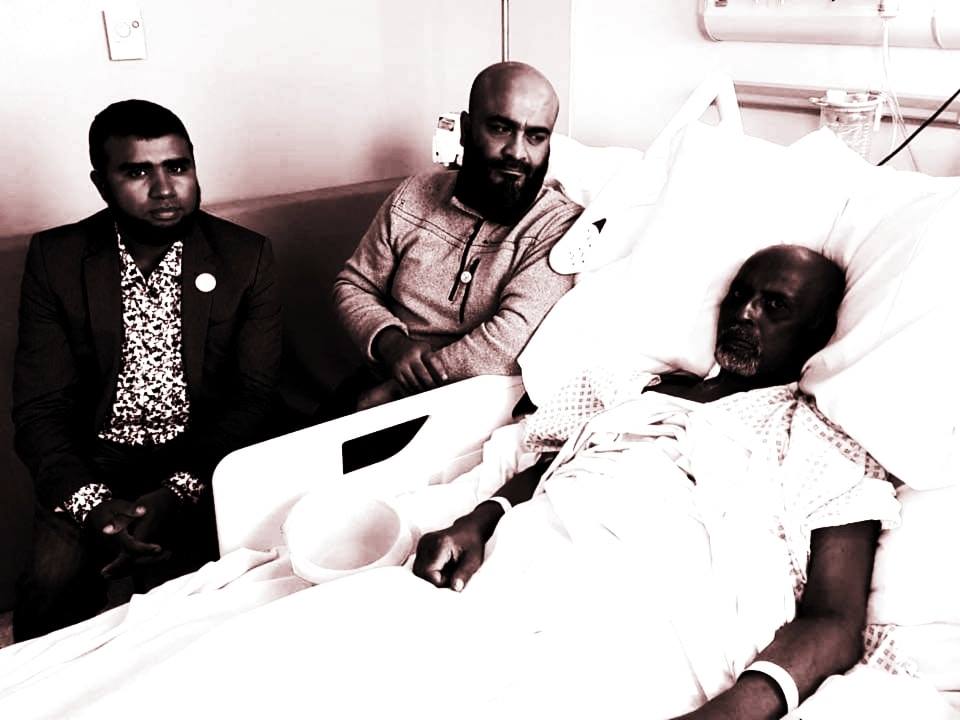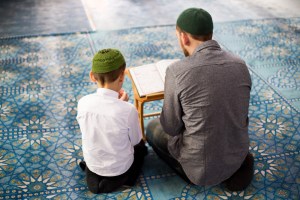© By Sheikh Kazi Luthfur Rahhman – Imam and Kahteeb at London Central Mosque (Regent’s Park)
From the great wisdoms of Allah the Almighty, he made some places more sacred than others and some moments more virtuous and meritorious than others. Human beings are created for nothing but to worship their creator. They have been created from weaknesses; yet they can achieve much in this world by the aid of their Lord. Allah the Almighty brings some moments throughout the year when he forgives the sins of his servants more generously and multiplies their rewards unaccountably.
Lailatun Nisf Min Sh’aban (15th Night of Sha’ban) which is known as Shab-E-Barat to many people is a virtuous moment of Allah which one should feel fortunate to be a part of. A number of Ahadeeth (prophetic statements) suggest the speciality and excellence of this great night. Even though most of the Ahadeeth that are related to the 15th Night of Sha’ban are considered as weak according to some Experts of Hadeeth; we still find a few Ahaadeeth which are considered authentic by early and contemporary specialists such as; Imam Ibnu Hibban, Imam Al-Baihaqi, Allamah Zafar Ahmed Uthmani and Sheikh Al-Albani Rahimahumullah (May Allah Shower his Mercy Upon Them).
Weak Hadeeth is a term used in the science of Hadeeth which comes in different categories. The criteria of Hadeeth specialists was extremely strict, to the extent that they would easily classify a Hadeeth as weak if they saw one of the narrators merely consuming food while walking. The reason for this may be that eating and drinking while walking is disliked in Islam unless it is a necessity. Hence it is not the weakness that one may think. Rather it is a term in the Science of Hadeeth which must be understood correctly.
Also, the scholars of Hadeeth have different opinions with regards to the application of a weak Hadeeth. According a big number of experts, the weak Hadeeth can be practiced and applied as long as it is there to support an already-established virtuous deed. However, it cannot be relied upon individually to derive any Fiqhi Ruling (Islamic Law) such as Halal or Haram.
Imam An-Nawai, a Great Shafi’e Scholar mentioned in his famous book Al-Majmoo’:
قدمنا اتفاق العلماء على العمل بالحديث الضعيف في فضائل الأعمال دون الحلال والحرام.
Which means: we have presented the anonymous agreement of the scholars on the permissibility to act upon a weak Hadeeth related to virtuous deeds only without the issues of Halal or Haram.
Imam Ibnu Muflih, a famous Hanbali Scholar mentioned in his book Al-Adaab Al-Sharyi’ah:
والذي قطع به غير واحد ممن صنف في علوم الحديث حكاية عن العلماء أنه يعمل بالحديث الضعيف في ما ليس فيه تحليل ولا تحريم كالفضائل، وعن الإمام أحمد ما يوافق هذا.
Which means: what has been affirmed by more than one authored books in the Science of Hadeeth is that, it is permissible to act upon a weak Hadeeth related to virtuous deeds only and not the issues of Halal or Haram. Imam Ahmad Ibn Hanbal has also agreed to this.
Imam Muhammad Al-Hattab, a Genius Maliki Scholar wrote in his significant book Mawahib Al-Jalil Fi Sharhi Mukhtasar Al-Khaleel:
اتفق العلماء على جواز العمل بالحديث الضعيف في فضائل الأعمال.
Which means: The scholars have agreed upon the permissibility of acting upon a weak Hadeeth that are related to Fadail Al-A’mal (Virtious Deeds).
There are a small number of scholars who preferred not to act upon a weak Hadeeth such as Imam Yahya Ibnu Ma’een, Imam Abu-Bakr Ibnul Arabi and Imam Ibnu Hazm Az-Zahiri. Interestingly, Scholars such Imam Ahmad Bin Hanbal and Imam Abu-Dawud As-Sajistani consider the absolute permissibility of benefiting from weak Hadeeth wether in virtuous deeds or in deriving the Fiqhi Rulings.
Part of the honesty of a preacher is to mention the difference of opinions of the reliable scholars, especially in sensitive matters, while spreading the knowledge in order to minimise the confusion and division of the Muslims which is a primary cause of their sufferings today.
It is worth mentioning a term in the Science of Hadeeth known as “Hasan Li Ghairihi” which means when a weak Hadeeth that is narrated through many different chains of narrations can give it the strength of an authentic Hadeeth.
Virtues of 15th Night of Sh’aban which are mentioned in Prophetic Statements:
ما رواه البيهقي في شعب الإيمان عن أبي ثعلبة الخشني رضي الله عنه قال: قال رسول الله صلى الله عليه وسلم: ” إذا كان ليلة النصف من شعبان اطلع الله إلى خلقه، فيغفر للمؤمنين، ويملي للكافرين، ويدع أهل الحقد بحقدهم حتى يدعوه” ورواه الطبراني، وحسنه الألباني- رحمه الله- في صحيح الجامع برقم 771
On the authority of Abu-Tha’labah Al-Khashani Radiallahu Anhu that, the Messenger of Allah PBUH said:
“Allah looks over at his creation and forgives all the believers on the 15th Night of Sha’ban except for the one who begrudges and hates. He leaves them in their enmity.”
[Narrated by Al-Baihaqi and authenticated by Sheikh Al-Albani Rahimahullah]
عَنْ عَائِشَةَ، قَالَتْ فَقَدْتُ النَّبِيَّ ـ صلى الله عليه وسلم ـ ذَاتَ لَيْلَةٍ فَخَرَجْتُ أَطْلُبُهُ فَإِذَا هُوَ بِالْبَقِيعِ رَافِعٌ رَأْسَهُ إِلَى السَّمَاءِ فَقَالَ ” يَا عَائِشَةُ أَكُنْتِ تَخَافِينَ أَنْ يَحِيفَ اللَّهُ عَلَيْكِ وَرَسُولُهُ ” . قَالَتْ قَدْ قُلْتُ وَمَا بِي ذَلِكَ وَلَكِنِّي ظَنَنْتُ أَنَّكَ أَتَيْتَ بَعْضَ نِسَائِكَ . فَقَالَ ” إِنَّ اللَّهَ تَعَالَى يَنْزِلُ لَيْلَةَ النِّصْفِ مِنْ شَعْبَانَ إِلَى السَّمَاءِ الدُّنْيَا فَيَغْفِرُ لأَكْثَرَ مِنْ عَدَدِ شَعَرِ غَنَمِ كَلْبٍ.
Sayeedah Aishah Radiallahu Anha said:
“I lost the Holy Prophet during one night and found him in Al-Baqee cemetery.” He said: “Were you afraid that Allah and His Messenger would deal unjustly with you?” I said: “Allah’s Messenger, I thought that you had gone to some of your other wives.” He (may Allah bless him and grant him peace) said: “Verily Allah, the Exalted and Glorious, comes down to the heaven of the world on the 15th Night of Sha’ban and forgives sins even more abundant than the hair of the goats of Kalb.”
[Narrated by Tirmidhi, Ibnu Majah]
عن عائشة قالت: قام رسول الله صلى الله عليه وسلم من الليل يصلي، فأطال السجود حتى ظننت أنه قد قبض، فلما رأيت ذلك، قمت حتى حركت إبهامه، فتحرك، فرجعت، فلما رفع رأسه من السجود وفرغ من صلاته، فقال: ” يا عائشة، أو يا حميراء ظننت أن النبي قد خاس بك ” قلت: لا والله يا نبي الله ولكني ظننت أنك قبضت لطول سجودك فقال: ” أتدرين أي ليلة هذه؟ ” قلت: الله ورسوله أعلم، قال: ” هذه ليلة النصف من شعبان، فيغفر للمستغفرين ويرحم المسترحمين ويؤخر أهل الحقد كما هم.
Aishah (Radiallahu Anha) said:
“The holy Prophet Mohammed (may Allah bless him and grant him peace) stood up in prayer during part of the night and made his prostration so lengthy that I thought his soul had been taken back. When I saw this I got up and went to move his big toe, whereupon he moved, so I drew back. When he raised his head from prostration and finished praying, He (may Allah bless him and grant him peace) said: “O A’isha, O fair little one (Humayrah)! Did you think that the Prophet had broken his agreement with you?” She replied: “No, by Allah, O Messenger of Allah, but I thought that your soul had been taken back because you stayed in prostration for so long.” He said: “Do you know what night this is?” She said: “Allah and His Prophet know best.” He said: “This is the 15th Night of Sha’ban! Verily Allah the Glorious and Majestic look at His servants on the Middle Night of Sh’aban, and He forgives those who ask forgiveness, and He bestows mercy on those who ask mercy, and He gives a delay to the people of envy and spite in their state.”
[Narrated By Imam Al-Baihaqi]
Allamah Mufti Taqi Al-Usmani, a Great Contemporary Scholar of Hadeeth and Fiqh wrote the following statement in his famous article ” Sha’ban: Merits, Do’s, and Dont’s” after mentioning some of the Ahadeeth related to 15th Night of Sh’aban:
‘Although the chain of narrators of some of these traditions suffers with some minor technical defects, yet when all these traditions are combined together, it becomes clear that this night has some well founded merits, and observing this night as a sacred night is not a baseless concoction as envisaged by some modern scholars who, on the basis of these minor defects, have totally rejected to give any special importance to this night.’
Imam Ibnu Taimiyah Rahimahullah , another giant of Islam has mentioned in his famous book “Rasail Wa Fatawa Ibn Taimiya Fil Fiqh”:
‘As for the 15th night of Shabaan, there are many narrations and Athar (quotes from the sahabahs) regarding its virtues. It has been reported of the Salaf (pious predecessors) that they prayed on this night. Therefore, praying alone on this night, having precedence in the Salaf, is sufficient evidence and something of this kind cannot be denied.’
One should observe the 15th Night of Sha’ban individually by offering extra Nafl Prayers, Recitation of the holy Quran, Adhkaar (Rememberence of Allah) and Duaas (Supplication). Also, It is extremely important for a Muslim to refrain from any innovative and excessive activities such as offering a special prayer for that night, extra decoration and lighting, considering it as a night of celebration and spending the whole night in congregation in the mosque etc.
NB: If you follow the Wifaqul Ulama calendar then the night of the 15th of Sha’ban this year falls on Tuesday 1st of May 2018.
If you would like to write a guest article for Islamopedia, you can contact us on mail@islamopedia.co.uk






![[Guest Post] Journey to Jannah](https://islamopedia.co.uk/wp-content/uploads/2020/01/istock-644053990.jpg?w=672&h=372&crop=1)
![[Guest Post] Dying and Death are Painful and Hard](https://islamopedia.co.uk/wp-content/uploads/2018/11/golam-robbani.jpg?w=672&h=372&crop=1)
 Innalillahi Wainnailairajun – From Allah we come and to Him we return.
Innalillahi Wainnailairajun – From Allah we come and to Him we return.![[Guest Post] 15th Night of Sha’ban](https://islamopedia.co.uk/wp-content/uploads/2018/04/night.jpg?w=672&h=372&crop=1)
![[Guest Post] Helping Those in Need](https://islamopedia.co.uk/wp-content/uploads/2017/09/how-islam-helps-those-in-need-1.jpg?w=672&h=372&crop=1)
 Helping others is a positive trait and something that we should all aim towards. Endeavouring to achieve a state of equilibrium with our friends and neighbours is something to be honoured and respected – only when we work together will we truly be able to create a better society and a brighter future for our children. By following the teachings of Islam and committing to work towards shaping ourselves into better people, we are able to do our bit to help those who are less fortunate than us.
Helping others is a positive trait and something that we should all aim towards. Endeavouring to achieve a state of equilibrium with our friends and neighbours is something to be honoured and respected – only when we work together will we truly be able to create a better society and a brighter future for our children. By following the teachings of Islam and committing to work towards shaping ourselves into better people, we are able to do our bit to help those who are less fortunate than us. In addition to donating your time or money, there are other ways in which you can share your own good fortune with others. Sharing wealth and food are great places to start – whether it is through donating your Zakat or Qurbani at the right time of year or simply helping to feed the hungry, there are always plenty of opportunities to commit to helping out the vulnerable both close to home and across the world.
In addition to donating your time or money, there are other ways in which you can share your own good fortune with others. Sharing wealth and food are great places to start – whether it is through donating your Zakat or Qurbani at the right time of year or simply helping to feed the hungry, there are always plenty of opportunities to commit to helping out the vulnerable both close to home and across the world.


 This Ramadan we at Islamopedia and the Wednesday Circle challenge you to complete 30 different good deeds for each day of the holy month. The idea being to encourage and instil new deeds in our lives that we can carry forward even after Ramadan is finished. And to make it even easier, we have done the hard work for you and made a list of 30 deeds that you can complete in this month.
This Ramadan we at Islamopedia and the Wednesday Circle challenge you to complete 30 different good deeds for each day of the holy month. The idea being to encourage and instil new deeds in our lives that we can carry forward even after Ramadan is finished. And to make it even easier, we have done the hard work for you and made a list of 30 deeds that you can complete in this month. The task is simple. Each day in Ramadan, take one deed from the list below and complete it. Once complete make a note of it so you don’t forget which deed you have done. The next day take another deed and so on until the end of the month. By the end of the month you should have a list of 30 deeds that you have completed in the month that you may not have otherwise done. Keep the list to hand and carry on doing those same deeds in the months after Ramadan as well insha Allah.
The task is simple. Each day in Ramadan, take one deed from the list below and complete it. Once complete make a note of it so you don’t forget which deed you have done. The next day take another deed and so on until the end of the month. By the end of the month you should have a list of 30 deeds that you have completed in the month that you may not have otherwise done. Keep the list to hand and carry on doing those same deeds in the months after Ramadan as well insha Allah.